Menstruating in Ramadan: Every year, with the blessings of Allah SWT, Ramadan comes. Every year, Muslims worldwide rejoice and celebrate the coming of the month of mercy, the month of forgiveness, the month of earning rewards.
Because, like the Prophet (peace be upon him) told us, in Ramadan, the reward of every good deed is multiplied!
Is there any Muslim then who wouldn’t want to rush to do good deeds then? With the Shayateen chained, it becomes so much easier to do rewarding deeds. And we all try, strive, and struggle to do as many good deeds as possible.
And then comes our date. Oh no!
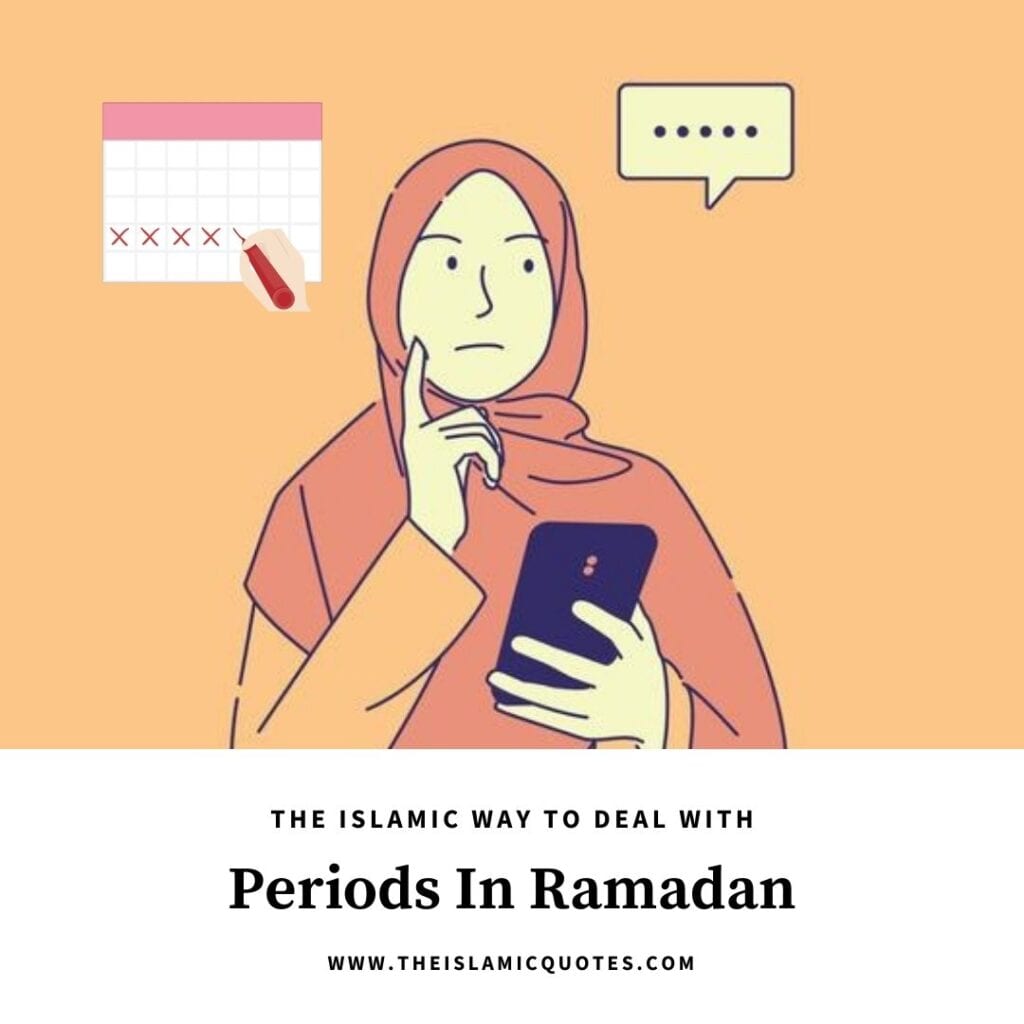
The bleeding, the cramps, the pain, or just the mood, all of it deflates our excited Ramadan bubble, not to forget the disability to fast and pray. All the exhilaration comes to a stop, like a speeding car that screeches to a halt.
That’s how many of us feel. But is that how it should be? Can I not benefit from the blessings of Ramadan when on my periods? How do I manage my emotions, thoughts, and Ramadan motivation during menstruation?
If all of these questions sound familiar, then follow us along to find answers in this article.
Periods in Ramadan – A Blessing or a Curse?
Sometimes, the surroundings we live in and the people we interact with can make us feel like periods in Ramadan are nothing but a curse.
But, according to the Islamic perspective, that couldn’t be more false.
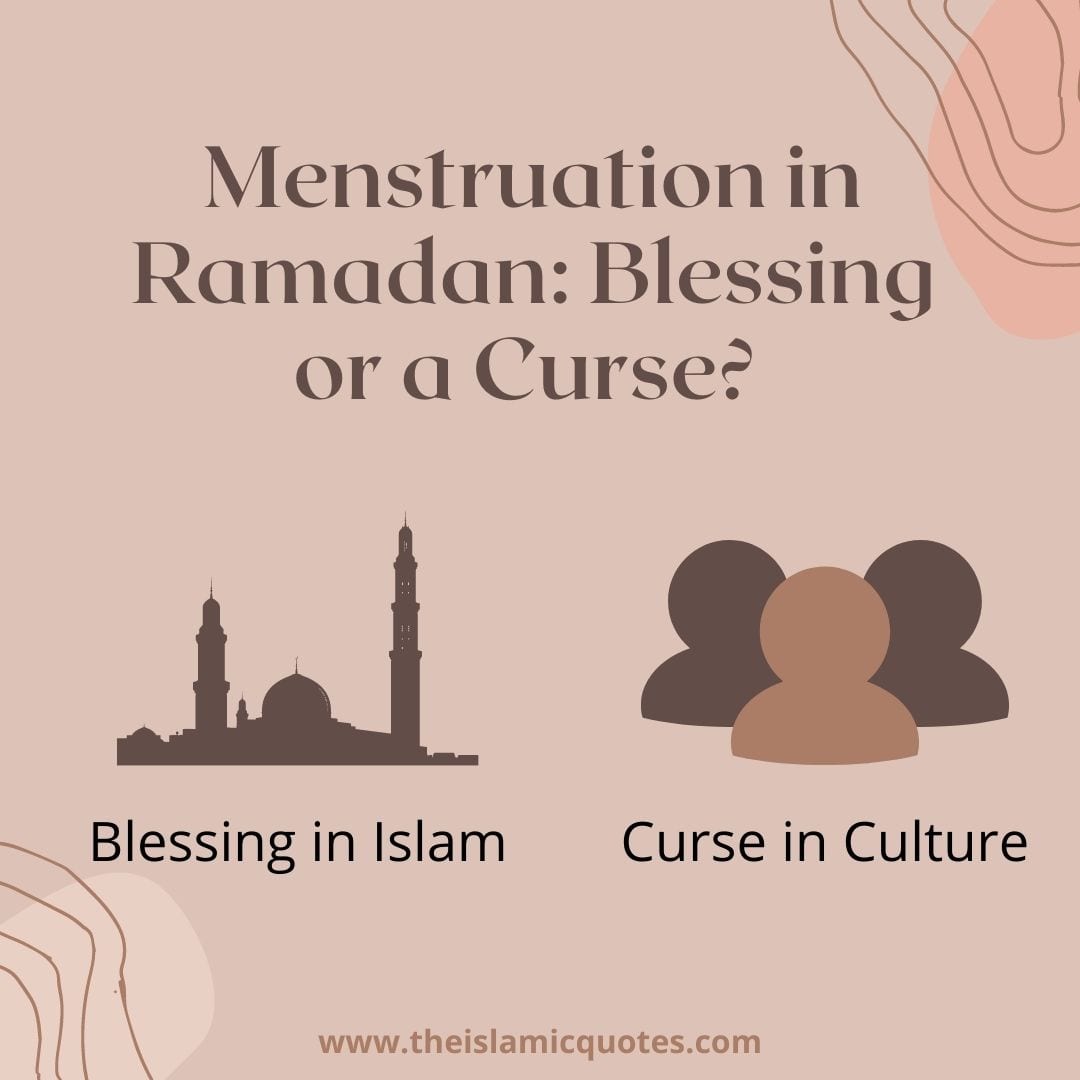
Islam doesn’t believe in anything being a curse in and of itself. The only exception is sinning. Sins of a man are a curse. And do you know the true Arabic meaning of the word cursed? It means to be deprived of Allah’s rehmah.
Thus, in Islam, only a person’s sins distance and deprive him of Allah SWT’s rehmah.
How could something as natural and predestined as menstruation be cursed? It’s not because it’s in no one’s control.
With that said, are they a blessing? Definitely! Your menstruation can be a way for you to get closer to Allah SWT. Am I kidding? No. Read on to find out how your menstruation is truly a blessing – if you deal with it the Muslim way.
The Story of Hazrat Aisha (رضی اللہ عنہا)
When we get our periods, a lot of us feel that we are being deprived of Ibadah due to our sins. That doesn’t make sense, but given that we are sinful creations of the 21st century, let’s give this idea the benefit of the doubt.
But then, if it’s true that sins are at play, shouldn’t it be the case that pious women are never deprived of Ibadah in this month of worship?
Imagine Hazrat Aisha (RA), one of the most pious women to have walked the earth, the knowledgeable scholar from amongst the Sahabiyaat, a woman of great taqwa and God-consciousness, getting her periods right during Hajj. The Hajj that the Muslims had been waiting to do for years!
What a bummer? Hear what the Prophet (peace be upon him) said. He consoled her through his words, saying that ‘This is a thing which God has ordained for the daughters of Adam. So do what all the pilgrims do except the Tawaf around the Kaaba.’ (Bukhari)
There is great consolation in this incident in two ways. One, the Prophet (peace be upon him) assured her that she isn’t deprived of all good. She can do everything the pilgrims do, with only one exception. So, as menstruating women, we learn there is always a lot to do save the few exceptions!
Second, he reminded her about her relationship with a Prophet – what an honor to be a Prophet’s figurative daughter, if not a real one. He also implied that this is something predestined by Allah SWT, so keep faith in the ‘Taqdeer’ and do the best you can.
Moreover, the Prophet’s statement (peace be upon him) is also soothing in the sense that it makes Hazrat Aisha (RA) feel like she isn’t alone. All women, you and I, are in this together.
And the One who loves more than 70 mothers has put us here, so there is a tremendous amount of khayr. Let’s reaffirm our beliefs in this.
The Gain in the Pain

When the periods hit during Ramadan, we can feel that not only are we not doing anything, we are also spending our days in misery- especially the first few days.
The pains, the cramps, the mood swings, the feelings of lowliness and edginess, the groans, they can make you feel like such a loser.
At that time, remember the gain in pain.
The Prophet (peace be upon him) said:

Isn’t that just the most beautiful thing? Ramadan is all about shedding sins, and that pain you get from menstruation is like a cleaner of sins for you, given that you try to exercise patience.
So, when you’re bearing through that pain patiently, imagine the sins falling off your deeds books, imagine yourself being cleansed for Allah SWT. What an achievement it is to leave Ramadan with having your sins forgiven.
Moreover, you aren’t just losing sins when you bear the pain with patience; you are also getting rewarded for all the deeds you would’ve done out of your habit had the periods not come!
Take a look at this Hadith.

Through this, we learn that when something comes on any man from Allah SWT which renders him unable to do his habitual good deeds, Allah SWT rewards him nevertheless! Such is our appreciative Lord.
So, find the spirituality during the distress. Even those cramps can be a source of getting closer to Allah SWT – which is all we try to do in this blessed month.
Deeds You Can Still Do While Menstruating in Ramadan
Just as the Prophet (peace be upon him) told Hazrat Aisha (RA) that she can do all that pilgrims do except Tawaf around the Kaaba, likewise, you too, while menstruating during Ramadan, can do all that fasting people do except for a few things!
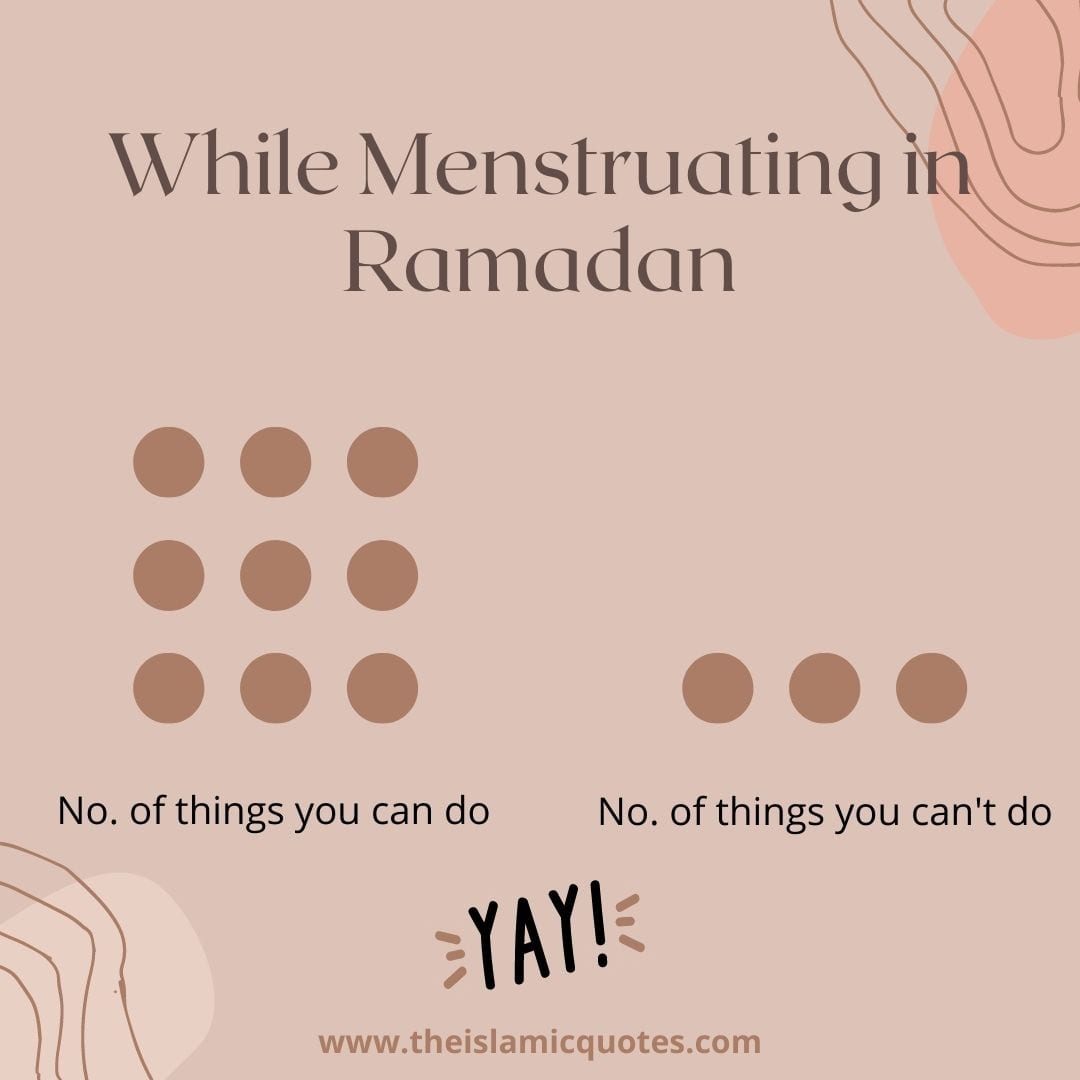
Yes, you can’t pray, and you can’t fast, but there’s a whole bunch of things you can definitely do.
Remember, the purpose of Salah is to obey Allah SWT and spend time with Him, get close to Him, talk to Him. And the purpose of fasting is to attain God-consciousness (Taqwa). The amazing thing is that you can achieve these spiritual milestones in other ways during menstruation!
Here, I have compiled 15 things you can do while on periods to earn rewards during Ramadan. But, before we delve into them, understand the following two concepts:
Radha bil Qadha
Radha bil Qadha means to be entirely at peace with whatever Allah SWT has destined for you.
This is one of the most significant forms of worship. It is a worship of the heart, where one submits entirely to Allah SWT.
Remember how the word Islam means submission, and a Muslim is someone who submits? When your heart submits to the will of Allah SWT (destiny), when it comes to peace with whatever Allah SWT sends forth for you in your life, know that you have achieved a high status of Emaan.
So, whenever something you don’t like strikes you, such as periods during Ramadan, tell your heart that it is from Allah SWT, and I am at peace with whatever He decides for me because what He chooses for me is better than what I decide for myself.
Tell your heart it is okay! I will try to do the best I can. I have no complaints whatsoever regarding what Allah has ordained for me.
This submission is one of the most excellent forms of the Qalbi Ibadahs (Worships of the heart).
So, right when you see that spot, you’ve got an opportunity to earn loads of rewards by submitting your heart to His will. How cool, right?
True Obedience
To obey Allah SWT means to obey His orders, right?
That’s what we do in Ramadan; we fast because He asked us to, we pray because He asked us to, we engage with the Quran because He told us this month has a special connection with the Quran.
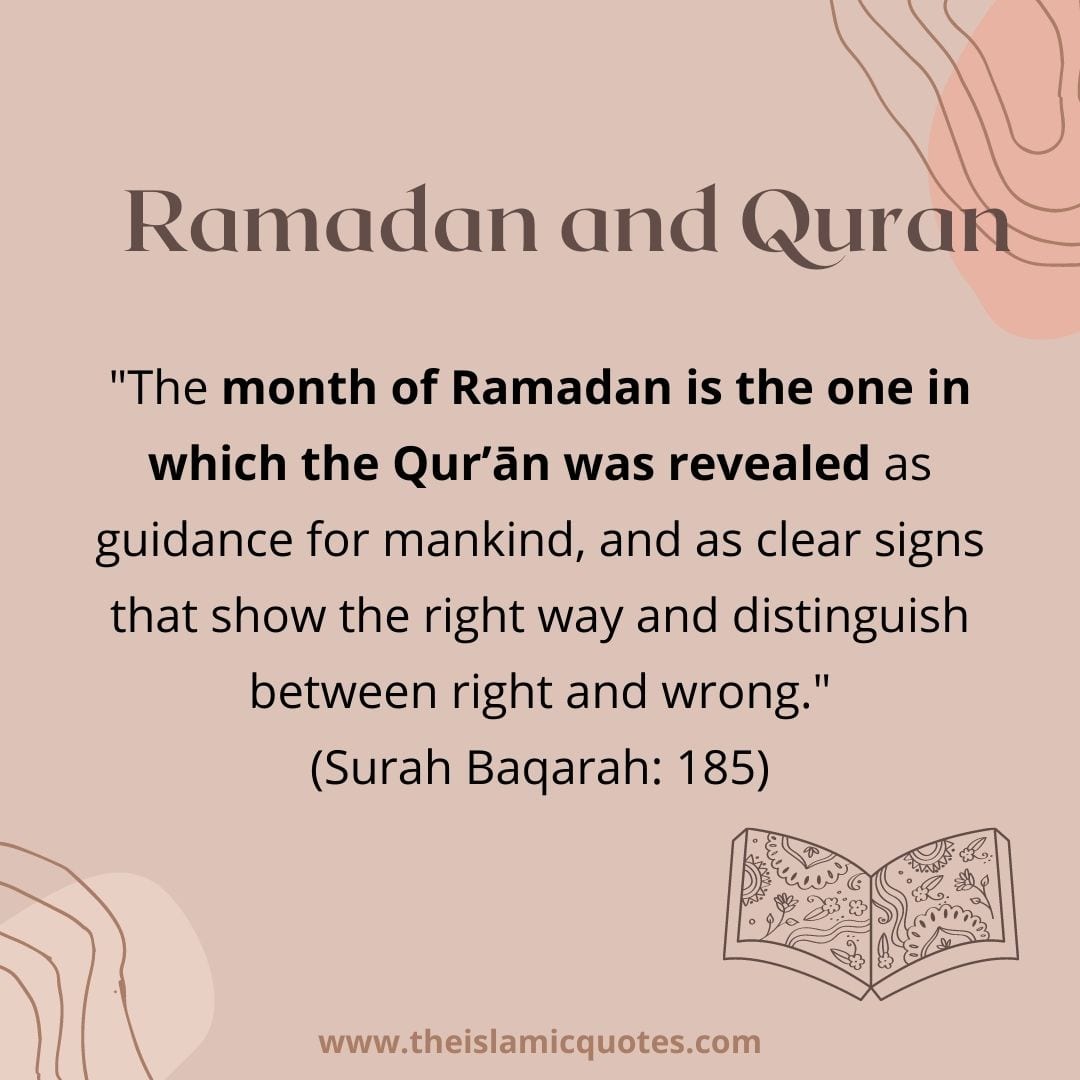
If that is the case, and indeed it is, ask yourself who you really obey when you refrain from fasting and praying during Ramadan?
Your heart wants to fast and pray, and so does your mind. And so do other people. But, on whose order do you refrain? Allah SWT!
Then isn’t this precisely Ibadah? It is. Because to obey Allah SWT is Ibadah, with the right intention.
Thus, every time you feel you can’t do much during periods in Ramadan, remind yourself that not doing what Allah SWT has asked you NOT to do is Ibadah!
Not eating in fasts is Ibadah, not fasting in menstruation is Ibadah. Just renew your intentions, and this game is yours!
With that said, here is a list of good deeds you can do. These are all the things that are common in you and a fasting person. So, hold them, and you won’t feel the bitter disconnect we can often feel during Ramadan.
1. Tasbeehat
At the times of the day when you usually offer Salah, make wudhu (just for reward, not purity, of course) and sit on your prayer mat.
After that, you can follow the following:
- Seek Allah’s Forgiveness
Reciting Istigfaar 100 times daily was the habit of the Prophet (peace be upon him).

There are many istighfaar duas you can recite here. Ramadan is the month of forgiveness, so seek Allah’s pardon for your sins.
The Prophet (peace be upon him) said that cursed is the one who leaves Ramadan without getting himself forgiven.

- Send Salawat Upon the Prophet
Commonly referred to as ‘Durood Shareef,’ this is another commandment of Allah SWT.
Allah SWT says in Quran:
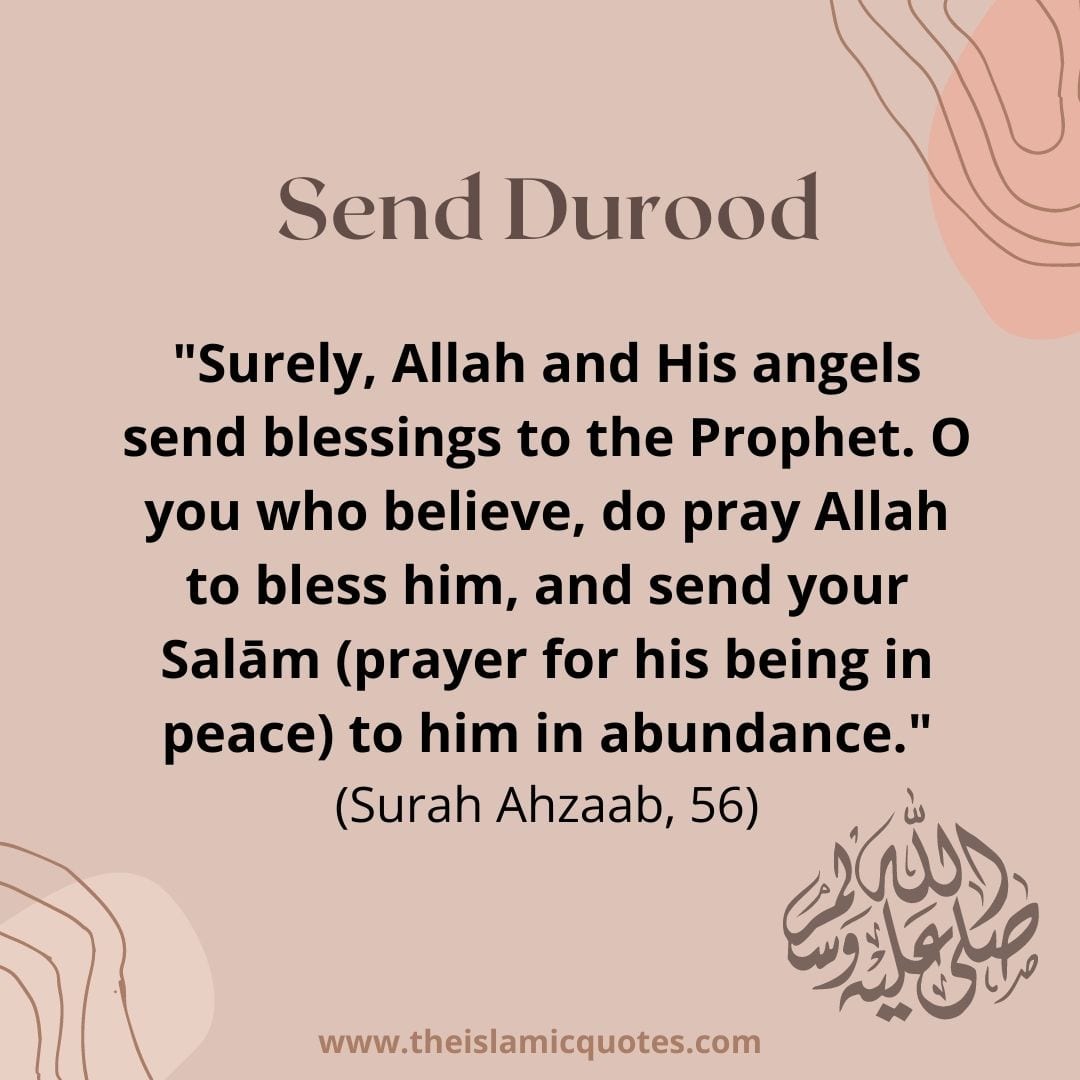
- Declare Allah SWT’s Perfection
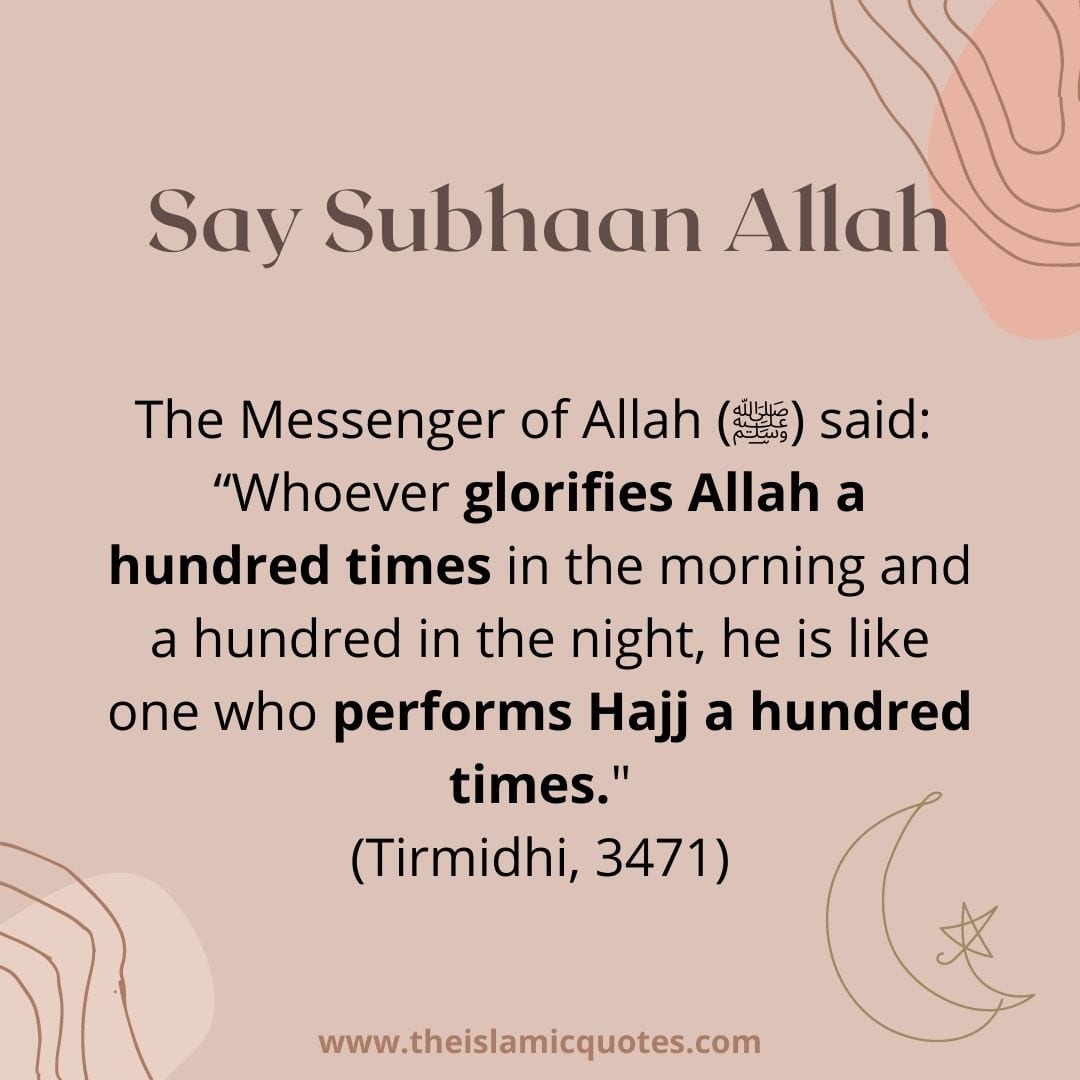
- Express Gratitude to Allah SWT
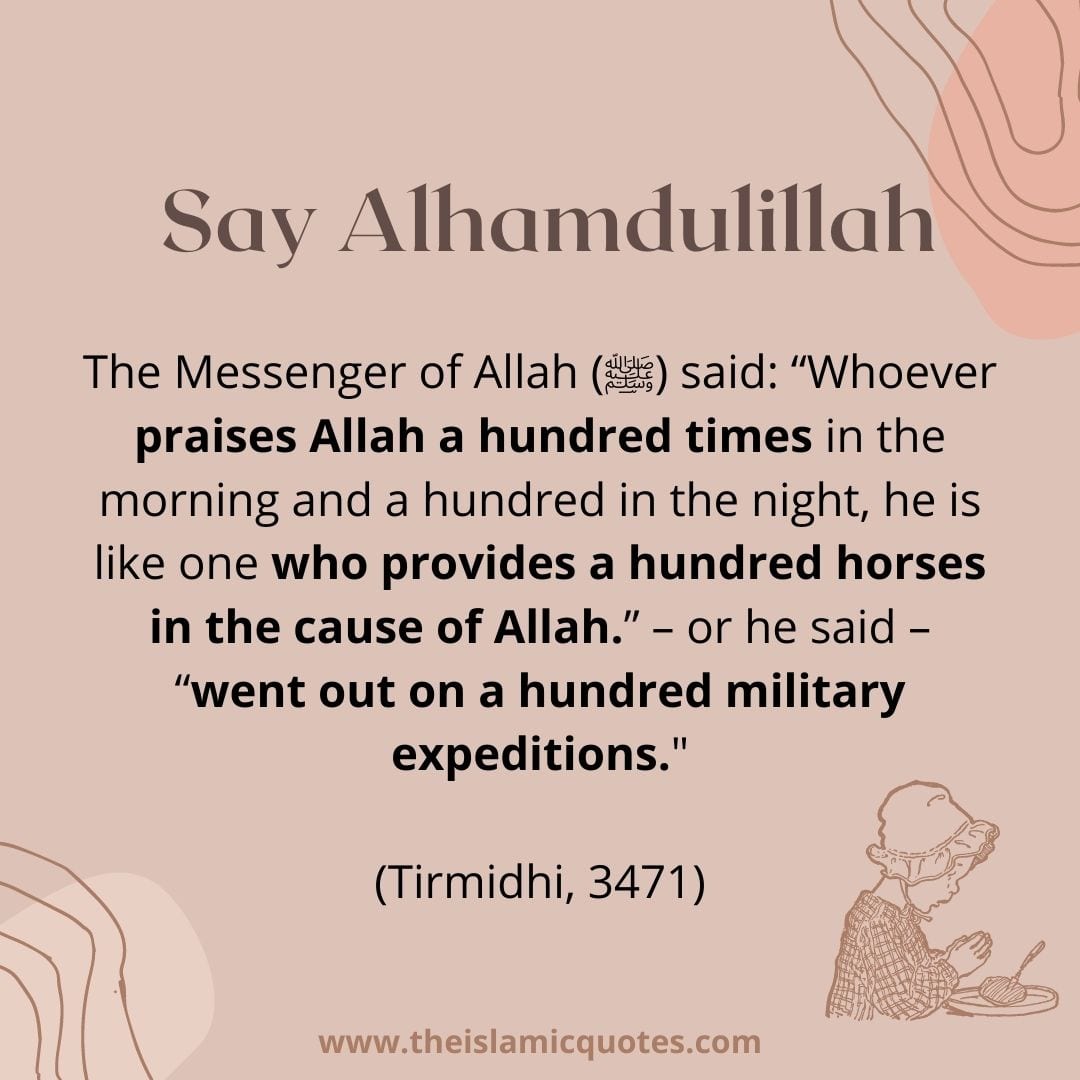
- Declare Allah’s Oneness
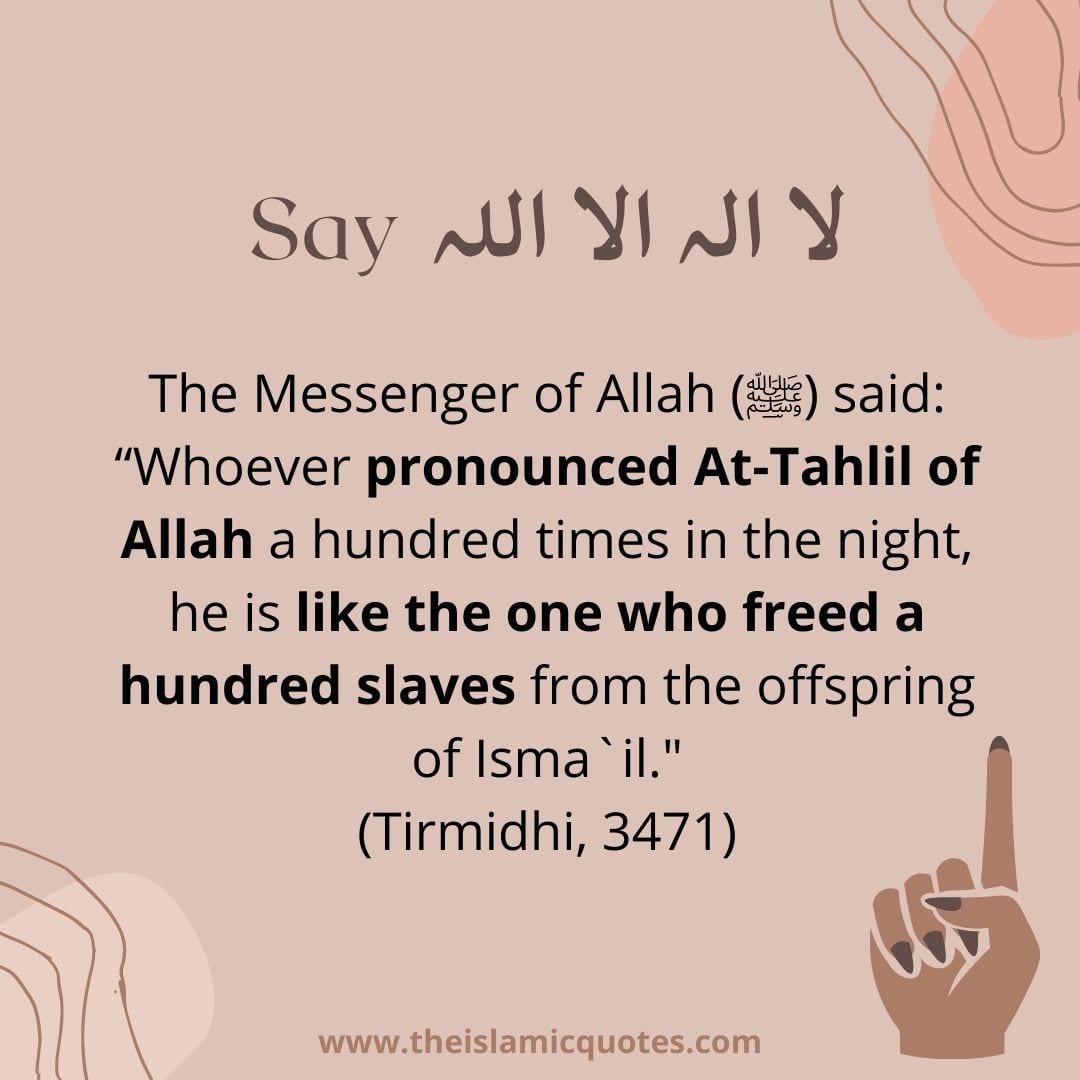
- Declare Allah’s Power and Might

- Declare Allah’s Greatness
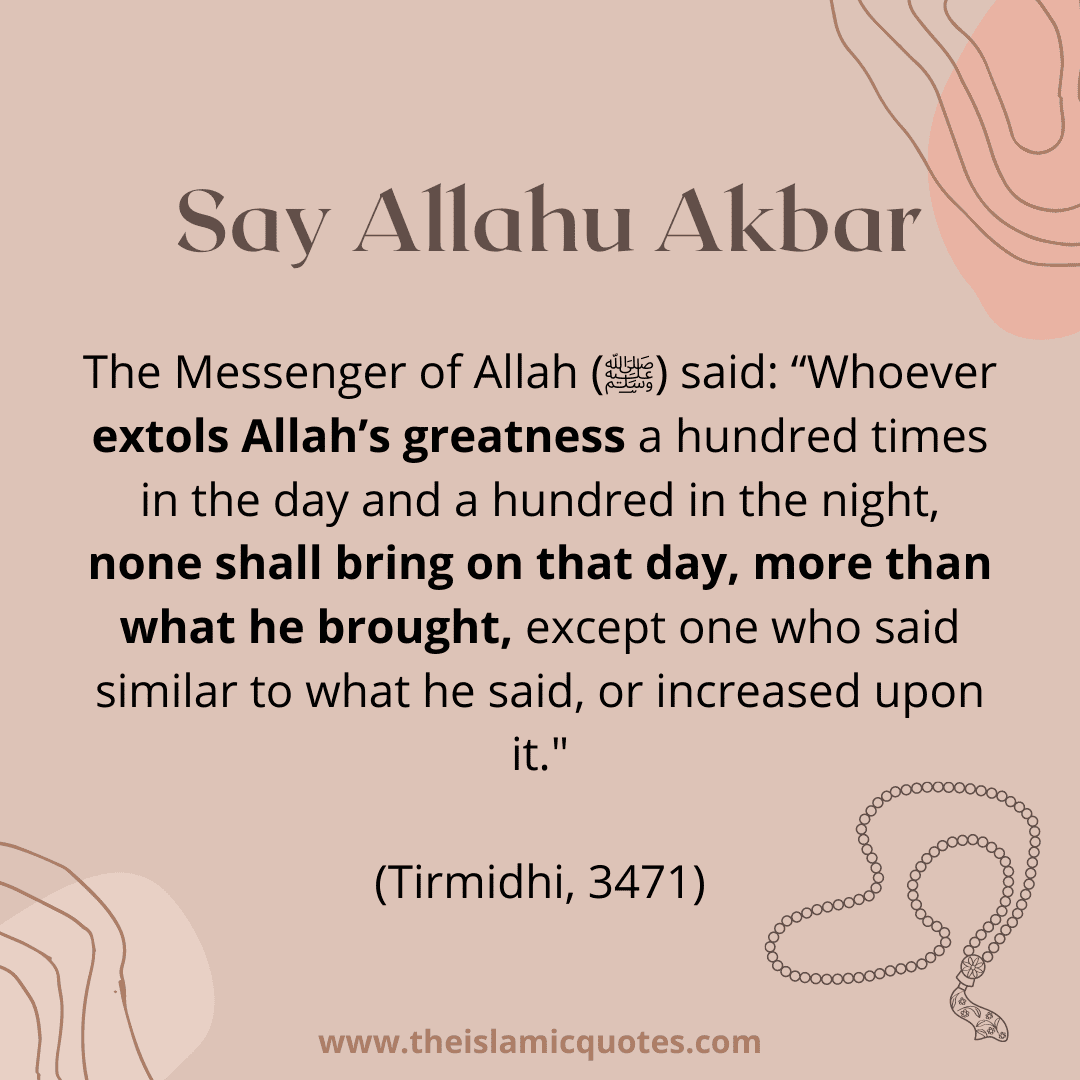
- Recite the Two Magical Phrases

2. Listen to the Quran
While reciting Quran has great virtues, but listening to it is also a Sunnah of our Prophet (peace be upon him).
The Quran is a cure for the heart; its divine words have an impact and an effect on our souls, minds, and hearts. Therefore, when you can’t recite it (more on that below), take time to listen to it.
Play up your favorite reciter and let the divine words heal you inside out.
I also recommend that you go through these 10 Tips To Complete Recitation Of The Quran in Ramadan.
3. Do Charity
Ramadan is the month of charity. Spend daily even if you spend little.
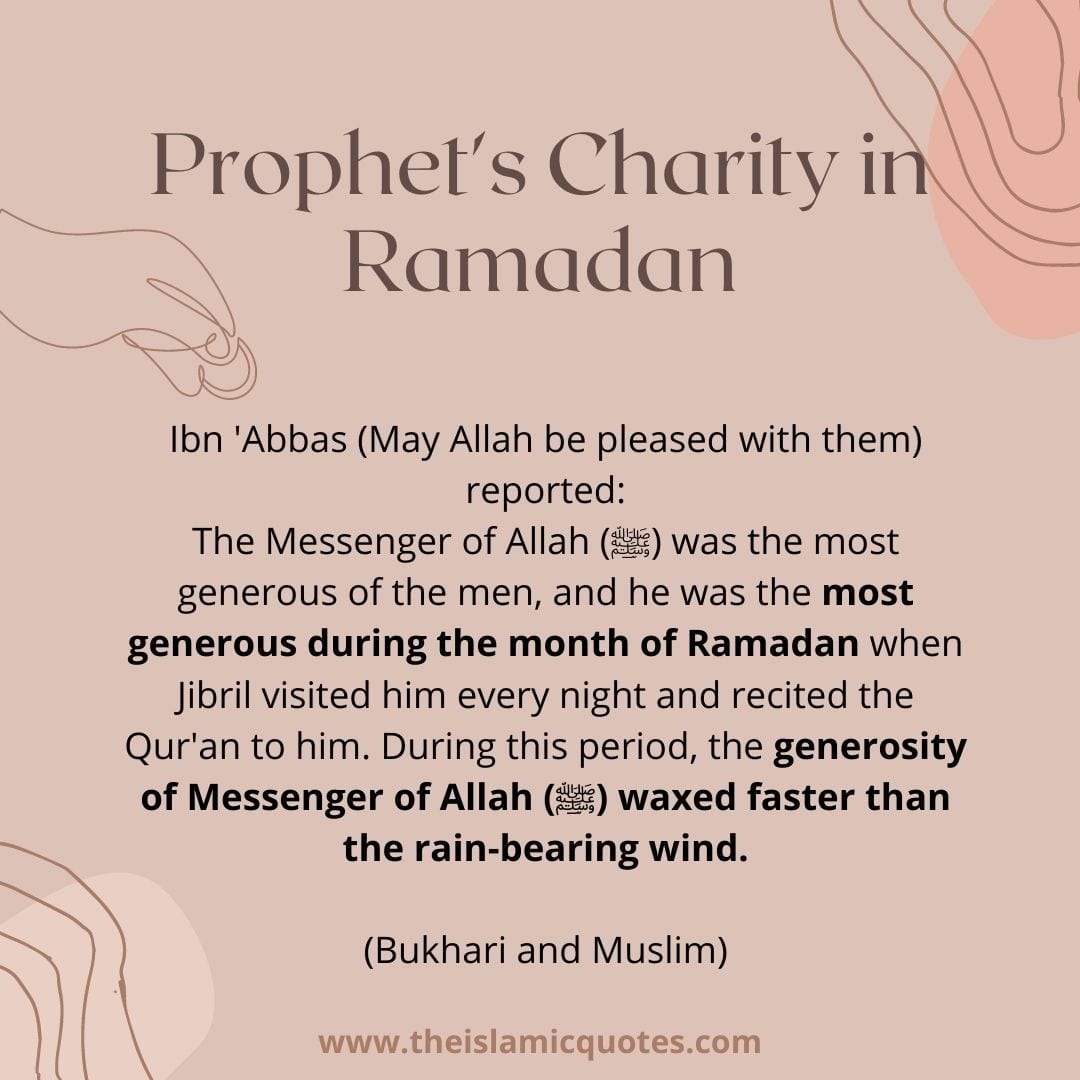
4. Memorise the Sunnah Duas
The Prophet (peace be upon him) taught us many duas, pertaining to daily life and life in general.
Dua is the weapon of a believer. So learn and keep that weapon with you day in and day out.
Here’s a short book with duas from the Quran and Sunnah. You can use it for learning.
5. Read Islamic Books
There’s so much you can learn in your free time during these days. Read up the biography of Prophet Muhammad (peace be upon him), Tafseer books, Hadith books, Seerah, stories of the companions, or any other Islamic literature you like. Learn about your religion. Here’s a list of the Best Islamic Books That Every Muslim Should Read.
6. Listen to Islamic Lectures
There’s a whole bunch of lectures and series available out there for seekers of knowledge. Pick any that suits you from authentic scholars and listen to them.
7. Try to Inculcate Sunnah Into Your Life

8. Do Khidmah With Niyyah
There is great reward in being at the service of other people, especially those related to you. Do khidmah of your parents, siblings, grandparents, or anyone. Make niyyah to please Allah SWT and earn immense rewards.
9. Do Mundane Acts With Niyyah
Every daily-life act, which is in and of itself a neutral task (neither a good deed nor a bad deed by definition) such as sleeping or eating, can become an Ibadah with the right intention. For example: eat with Niyyah to get the energy to do Dhikr, or sleep with Wudhu with the intention that while you sleep, you’d be away from sins.
10. Keep Your Tongue in Check
There are so many sins we do only with our tongue, such as lying, backbiting, being rude, demeaning someone, being arrogant, etc. The Prophet (peace be upon him) placed great emphasis on controlling the tongue.
So, hold it back even when you aren’t fasting because, like any other muscle, the tongue muscle, too, needs to be exercised to stay quiet.
You see how there’s an entire set of good deeds you can do even during menstruation. The no-go wall is minimal, as compared to the whole of the free-to-go area!
So, stay grateful for every breath and opportunity to do good deeds and try to do as many of them as possible. You’ll feel the spiritual reconnection very soon.
Menstruation In Ramadan; The Fiqh
Now, all these bubbling questions pop up in our minds when we encounter periods in Ramadan. We know we can’t fast and pray, but what about the rest?
Let’s take a look at the rulings regarding menstruation in Ramadan.
How to Manage Periods in Ramadan
Most of us don’t enter Ramadan with our periods going on. It is likely we would get them sometime during Ramadan. When that happens, take note of the following:
- If you get your periods during the non-fasting hours (Maghrib to Fajr), simply refrain from fasting the following days until you take the purity bath.
- If you get your periods during the fasting hours (Fajr to Maghrib), no matter what time you get them, your fast is broken and wouldn’t count. You would be required to keep Qadha of it.
- After your fast is broken, you can technically eat and drink, but Scholars recommend not doing so out of respect for the fast.
- Record the number of fasts you missed during menstruation, and make up for them after Ramadan. Remember that one make-up fast for one missed fast is the rule for fasts missed due to menstruation. You do not have to keep them consecutively, neither on any fixed days; you can do Qadha fasts whenever possible, though the earlier, the better.
When Periods End in Ramadan
Now, while the start of periods is often stark, the end is often not, which is why we often get confused as to whether or not we can fast and pray. Understand the following points:
- If your periods end in the non-fasting hours (Maghrib to Fajr), take the purificatory bath and start praying. The fast of the following day becomes obligatory on you.
- This applies even if the periods ended just one minute before the start of Fajr time. In this case, you can take the purificatory bath after Suhoor. Just make to pray Fajr in its time.
- If your periods ended before Fajr, but you did not know, you only found out later in the morning; if it is still before midday (Zawaal) and you haven’t eaten anything, then you can make niyyat to fast and start fasting. However, if it’s later than midday, you can’t fast anymore even though you’re not menstruating because, for fasting, niyyah is essential (it is not simply remaining hungry and thirsty).
- If your periods end during the fasting hours, then take the purificatory bath and start praying. Again, it’s better not to eat or drink until Iftaar out of respect for Ramadan.
Moreover, note that the same rulings apply for women undergoing Nifaas (postnatal bleeding).
Menstruation and Quran
What are the things you can do concerning the Quran during menstruation? While this applies to the entire year, this knowledge becomes even more essential in Ramadan, as it has strong ties with Quran.
Things You Can Do:
- Listen to the Quran
- Recall the verses in your heart (without the movement of tongue and lips)
- Recite Quranic duas with the intention of dua (not recitation)
- Write the Ayaahs without touching them
- Recite one word from an Ayah or a few verses (for Hafizaat and Teachers of Quran)
Things You Can’t Do:
- Touch the physical Quran (you can hold it with an external cloth or substance)
- Touch Ayaahs on screen (you can touch the screen if Quran isn’t open)
- Recite by tongue and lips (even silently)
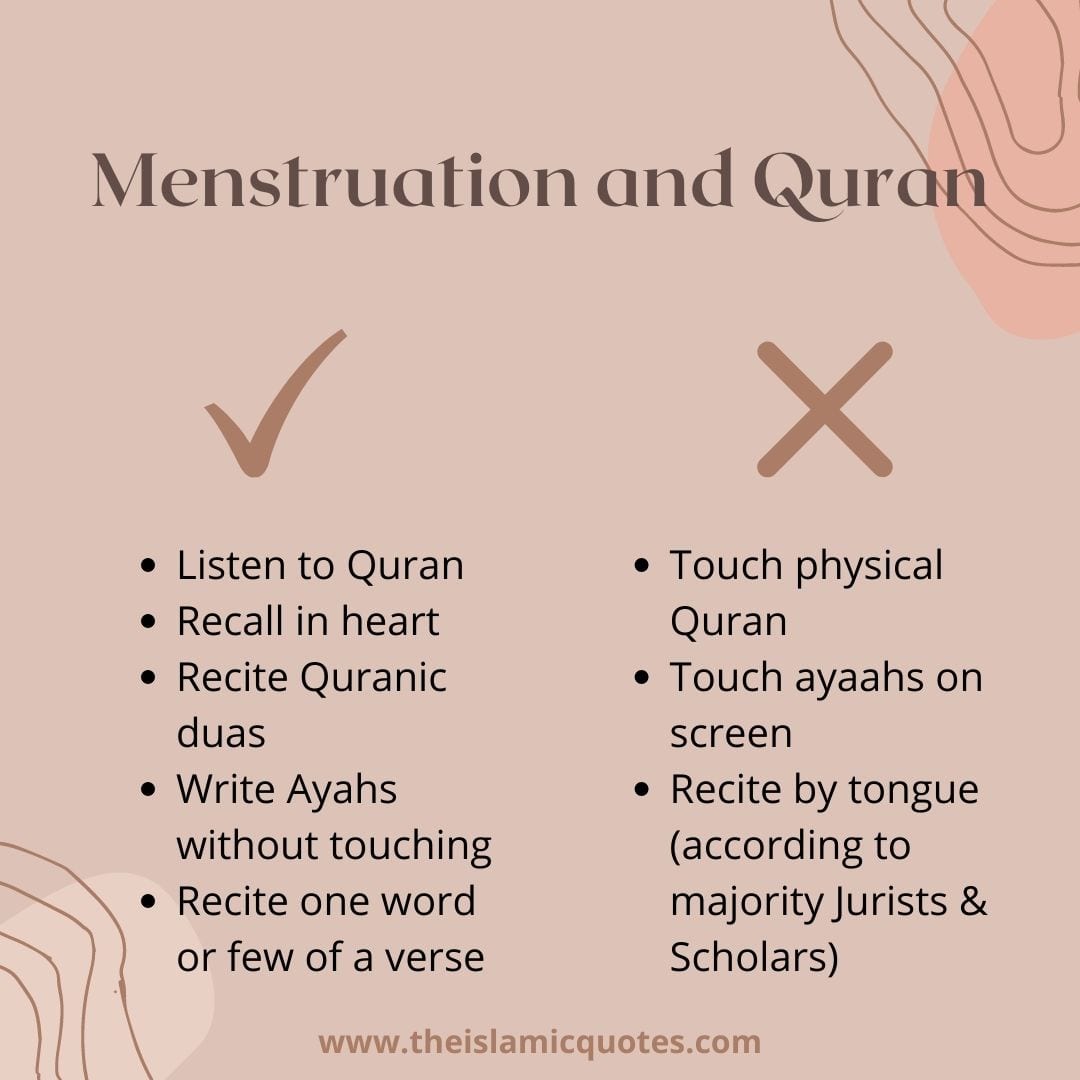
Quranic Recitation During Menstruation
Some people claim that it is okay for women to recite the Quran during menstruation, while others claim it’s not. What is the truth?
Well, there is a difference of opinion on this amongst the Scholars and Mujtahideen.
According to most scholars and Jurists, including Imam Abu Hanifa (RH) and Imam Shafai (RH), women can’t recite the Quran during periods.
According to Imam Maalik, Imam Ibn Taymiyyah, and a few other jurists, women can recite Quran during periods.
Thus, it is best to follow in this issue the same Imam you follow in all matters of your fiqh.
Conclusion
With this, we conclude our discussion on menstruation during Ramadan. We can now see how different the cultural perspective is from the Islamic perspective.
Whatever we do, it is our connection with Allah SWT saves us at the end of each day. So, let’s constantly strive to make that more substantial and stronger with each passing day.
